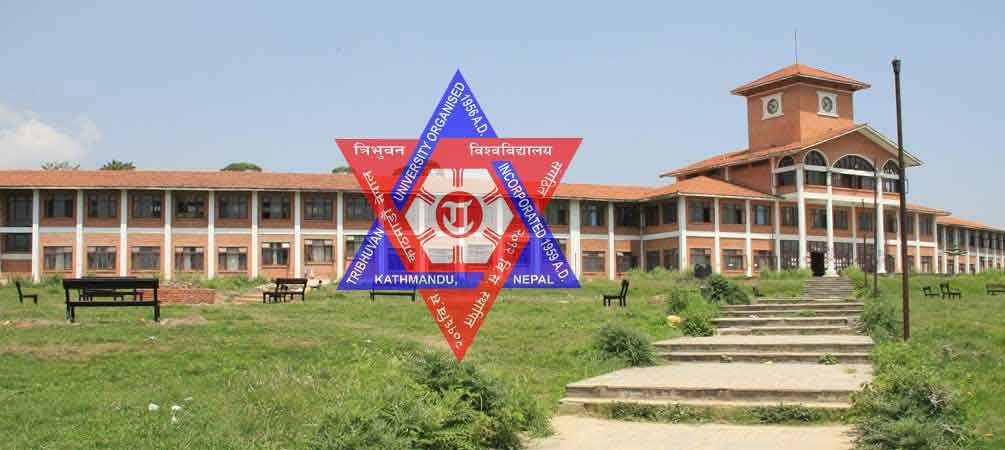
Supreme Court Halts TU’s Internal Recruitment of Faculty and Staff
The Supreme Court has ordered Tribhuvan University (TU) to stop appointing professors and staff through internal competition.
On Falgun 6, 2081, the court issued a mandate requiring TU to select and appoint faculty and staff strictly through open competition. The full text of the verdict was made public on Friday.
| Key Point | Details |
|---|---|
| Supreme Court Verdict Date | Falgun 6, 2081 |
| Key Decision | TU must appoint faculty and staff only through open competition |
| Internal Recruitment Status | Declared invalid and must not be repeated |
| Justices Involved | Nahakul Subedi and Sunil Kumar Pokharel |
| Allowed Exception | Internal competition is permitted only once under special circumstances |
| Past Internal Competitions by TU | Conducted more than 3 times until 2076 |
| Notable Amendment | TU Assembly amended regulations in 2078 to allow 10-year contract/temporary staff to compete internally. |
| Key Figures at the Time | Chancellor: Sher Bahadur Deuba, Vice-Chancellor: Dharmakanta Baskota |
| Petition Filed On | Poush 8, 2078 |
| Petitioners | Ramesh Bisht and Manita Khatri |
| Main Legal Concern | Open competition rights of eligible candidates were violated |
| Supreme Court Observation | Limiting open competition leads to institutional decline |
| Final Ruling Summary | Repeated internal recruitment violates legal mandate and undermines meritocracy. |
| Historical Amendments | Similar internal competition provisions were also made in 2056, 2061, 2069, and 2078 |
Open and Fair Competition Mandatory
The court directed that no legal provision should be made that narrows or undermines open competition. Appointments must be based on clean and healthy competition.
It explicitly instructed TU not to repeat attempts to appoint staff through internal competition in the future.
Only One-Time Internal Competition Allowed
A joint bench of Justices Nahakul Subedi and Sunil Kumar Pokharel concluded that internal competition may be allowed only once under special circumstances, but repeated practices are impermissible.
TU had already appointed professors and staff more than three times through internal competition until 2076.
Timeline of Key Events
-
On Falgun 9, 2077, TU Service Commission announced a vacancy for associate professors through open competition.
-
On Ashwin 18, 2078, the exam was postponed citing special reasons.
-
On Mangsir 14 of the same year, TU Assembly amended the 2050 regulations to allow a special internal open competition.
-
The provision allowed associate professor and assistant-level positions to be filled only by teachers or staff who had worked for 10 years in temporary or contract roles.
-
Prime Minister Sher Bahadur Deuba was the Chancellor, and Dharmakanta Baskota was the Vice-Chancellor at that time.
Petition Against Regulation Amendment
The regulation remained effective until 2079, as per the TU Assembly’s decision. The amendment and exam postponement infringed upon the rights of candidates preparing for open competition.
A writ petition was filed on Poush 8, 2078, by Ramesh Bisht and Manita Khatri against TU Assembly, Executive Council, Academic Council, and Service Commission.
They argued that TU intended to fill posts only through internal competition, violating fairness.
Court Denounces TU's Recruitment Tactics
The court found that the amended regulation denied capable and qualified individuals entry into the university through open competition.
According to the ruling, only through transparent and competitive hiring can TU recruit competent and capable faculty and staff.
Violating Open Competition Hurts TU’s Integrity
The court ruled that any attempt to block open competition or discourage a merit-based system goes against the spirit of the TU Act.
Such actions are deemed unacceptable for a historic academic institution like TU and are socially unaccepted.
Quality Education Depends on Open Market Talent
Without appointing qualified candidates from the open market, TU cannot achieve its objective of delivering quality education and producing skilled human resources.
The judgment clarified that limiting competition to contract or temporary staff makes the process a mere formality.
Narrow Competition Harms Academic Progress
“A special competition limited only to those in temporary or contract roles can neither be considered open nor competitive,” the court stated.
“Such a system does not contribute to TU’s academic advancement. Narrowing competition will ultimately degrade TU’s academic standards and institutional growth.”
Repeated Amendments Contradict Earlier Verdicts
TU had previously amended the rules on Ashwin 29, 2069, to allow internal competition until 2072. That too had faced legal challenges.
In 2076, the Supreme Court’s constitutional bench concluded that such a limited internal competition could only be conducted once.
While the court allowed it once, repeating the practice violated the essence of the verdict, the judgment said.
Misuse of Internal Competition
TU had already repeated internal competitions in 2061, 2069, and 2078, despite a provision initially meant for one-time use in 2056.
“Repeating a one-time special exception cannot be considered normal. It is viewed as abuse of legal interpretation, misuse of delegated authority, and manipulation of legal loopholes,” the ruling stated.
Tribhuvan University

